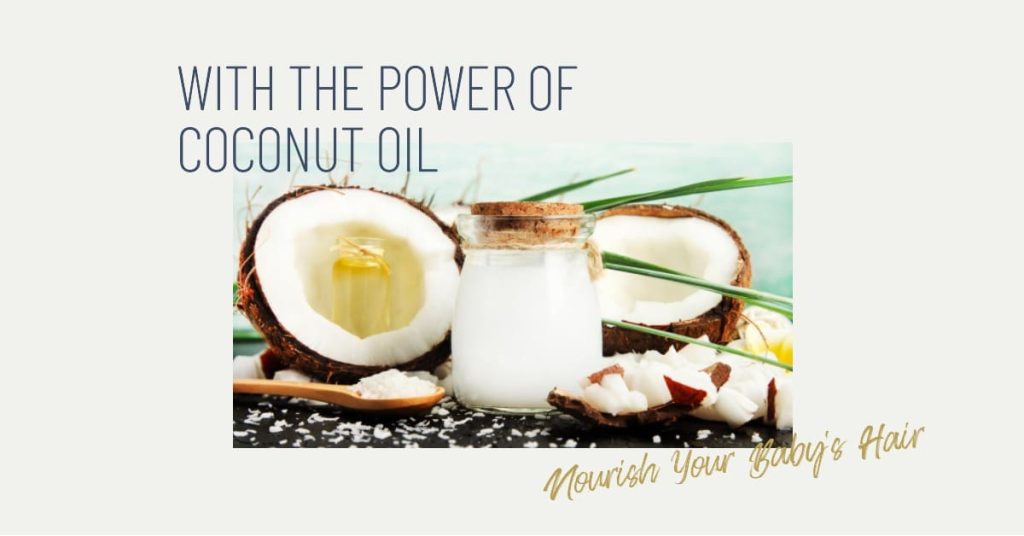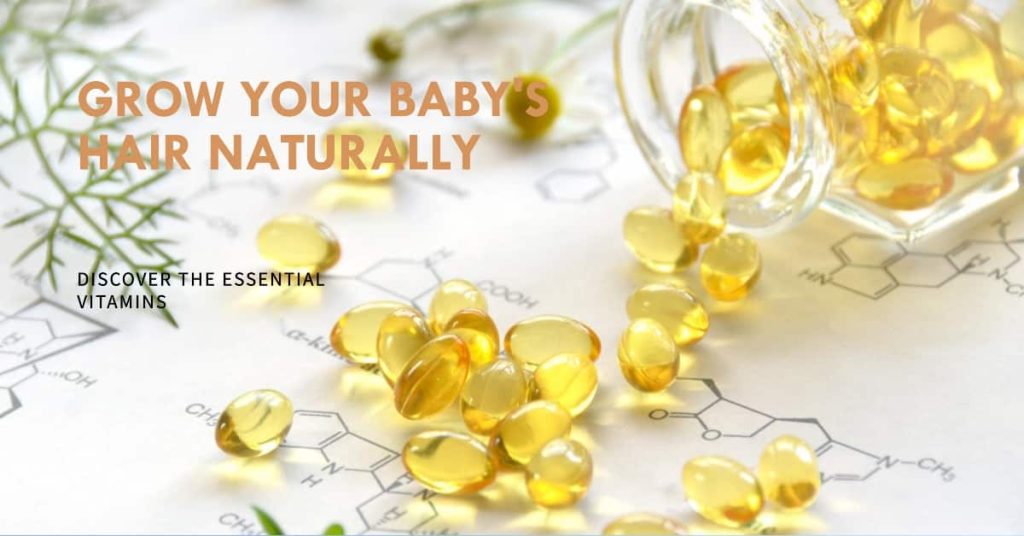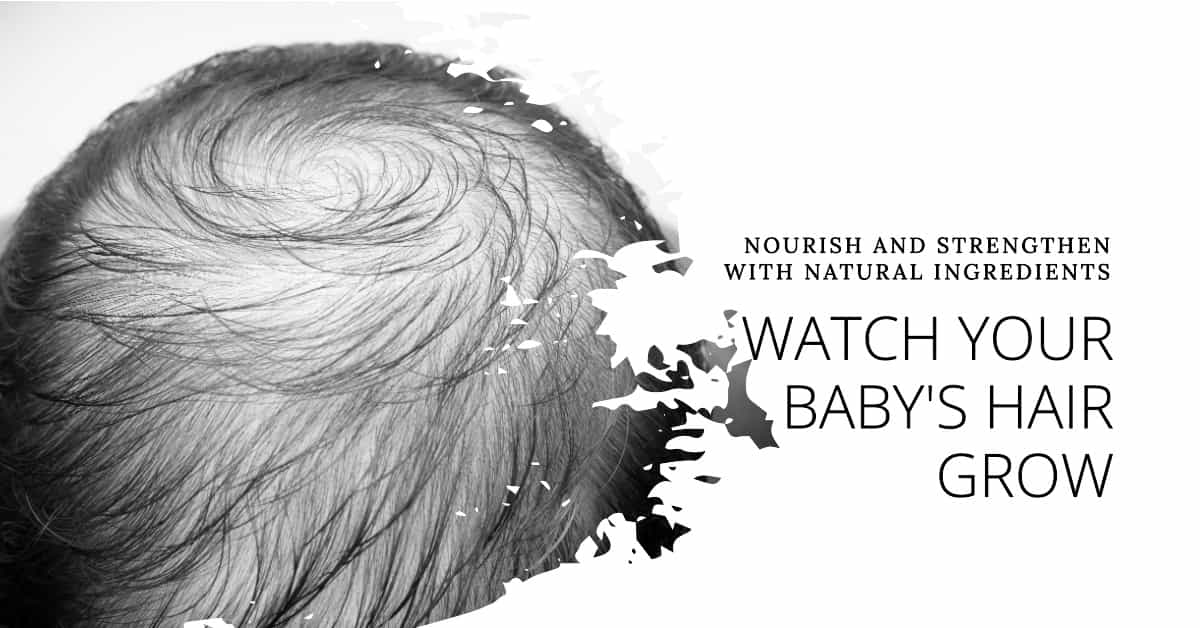As a loving parent, you might ask how to make baby hair Grow Thicker. It is important to use the right products on a baby’s hair and scalp to make baby’s hair grow thicker. In the meantime, use hair essentials for babies on a regular basis.
Also, remember not to use too many hair products for babies. In this guide, we will talk about the process of babay hair growth thickness. If you are concerned about your baby’s hair then stay reading.
How to make baby hair grow thicker naturally at home?
Promoting thicker hair growth in babies involves maintaining a healthy scalp and providing proper nutrition. Keep in mind that genetics play a significant role in determining hair thickness. So, some factors may be beyond your control. However, there are several steps you can take to support healthy hair growth in babies. So, let’s know how to make baby hair grow thicker naturally.
Balanced Diet:
Ensure the baby’s diet includes a variety of nutrients essential for hair health. This includes protein, biotin, zinc, iron, and vitamins A and C. Breast milk or a suitable formula provides essential nutrients in the early stages of life.
As the baby transitions to solid foods, incorporate sources of these nutrients like lean meats, dairy products, eggs, fruits, and vegetables.
Scalp Massage:
Gently massaging the baby’s scalp can stimulate blood flow, which may encourage hair growth. Use natural oils like coconut or olive oil for the massage. Warm the oil slightly before applying, and then gently rub it into the scalp using your fingertips.
Avoid Harsh Chemicals:
Use mild, baby-friendly shampoos and conditioners. Avoid products that contain harsh chemicals, as they can irritate the scalp and potentially hinder hair growth.
Maintain a Clean Scalp:
Regularly washing the baby’s hair and scalp helps keep it clean and free from excess oil, dirt, and debris. This can create an environment conducive to healthy hair growth.
Avoid Tension and Pulling:
Avoid tight hairstyles that can put excessive stress on the hair follicles. opt for looser styles like soft ponytails or leaving the hair down.
Provide Proper Hydration:
Ensure the baby is well-hydrated. Proper hydration is essential for overall health, which includes hair health.
Monitor for Any Issues:
Keep an eye out for signs of irritation, rashes, or other skin conditions on the baby’s scalp. These issues can hinder hair growth, and if present, consult a paediatrician for advice.
Encourage Tummy Time:
Spending supervised time on their tummy helps babies develop strong neck and upper back muscles. This can indirectly support healthy hair growth by promoting better circulation.
Be Patient:
Remember that hair growth is a natural process and varies from person to person. Some babies may have a full head of hair at birth, while others may take longer to develop thicker hair.
Consult a pediatrician or Dermatologist:
If you have concerns about your baby’s hair growth, it’s always a good idea to consult a healthcare professional. They can provide personalized advice based on your baby’s specific needs.
Remember, every baby is unique, and what works for one may not work for another. Additionally, some babies may naturally have thinner or finer hair, which is entirely normal. Focus on maintaining a healthy overall environment for your baby, and their hair will naturally flourish as they grow.
How to Make Baby Hair Grow Thicker Home Remedies

One of the best home remedies to help baby hair grow thicker is massaging the scalp with warm coconut oil. Coconut oil contains healthy fats that nourish and moisturize the scalp. Besides, warm coconut oil helps stimulate new growth and increases circulation to keep your little one’s locks looking their best.
Massage the oil into your baby’s scalp for a few minutes daily and leave it overnight for maximum results. Additionally, you can add a few drops of lavender essential oil to your coconut oil mixture to promote thick, healthy hair growth in babies.
Essential Vitamins to Make Baby Hair Grow

Here are the essential vitamins for promoting baby hair growth:
Vitamin A: Supports scalp health and sebum production.
Biotin (Vitamin B7): Strengthens hair shafts and prevents hair loss.
Vitamin C: Promotes collagen production for healthy hair and skin.
Vitamin D: Important for hair follicle health.
Vitamin E: Acts as an antioxidant to protect hair follicles.
Iron: Essential for carrying oxygen to hair follicles.
Zinc: Supports cell growth and hair follicle health.
Omega-3 Fatty Acids: Promote overall hair health.
Protein: Crucial for building hair structure.
Folate (Vitamin B9): Supports cell division for healthy hair growth.
How Can I Stimulate My Baby’s Hair to Grow?
As any new parent knows, watching their baby’s hair grow can be an exciting time. While genetics plays a major role in determining the rate of hair growth and texture. There are some things you can do to stimulate your baby’s hair growth. First, make sure that you are using gentle products on your baby’s hair. Note that harsh chemicals may cause irritation or dryness and lead to stunted hair growth.
You should also provide adequate nourishment for your child by ensuring they have healthy meals with plenty of protein and vitamins. For example, biotin, zinc and folic acid are some that promote healthy hair growth nutrients. Massaging the scalp is another great way to encourage blood circulation in the area. Messaging will help stimulate follicles and promote new strands of healthy locks!
Finally, try not to over-wash your baby’s head; instead. Wash every few days with lukewarm water so natural oils aren’t stripped away too often. With these tips in mind, you should start seeing more thickening of their mane soon!
What Age Does Baby Hair Get Thicker?
It is important to understand when and how baby hair gets thicker. Baby hair usually begins to thicken between the ages of six months and one year. This growth can vary from child to child. During these developmental stages, your baby’s scalp will produce more sebaceous glands responsible for producing oil that helps maintain a healthy scalp environment.
Additionally, as babies grow older, their follicles become larger due to hormonal changes in the body. As a result, they produce thicker strands of hair. In general, by the age of two, most babies have thickened up significantly with more developed locks than they had at birth.
However, it should be noted that some children may take longer for their scalp and hair follicles to mature; if you suspect any problems or delays in development regarding your baby’s growth or health, then it’s best not to hesitate to seek medical advice immediately.
How Do You Fix Thin Baby Hair?
If you’ve ever had a baby with thin, wispy hair that won’t seem to grow, you know how frustrating it can be. Fortunately, there are several things you can do to help fix thin baby hair and encourage healthy growth.
First of all, make sure your little one is getting enough nutrients in their diet; vitamins A and B7 (biotin) have been known to promote the growth of thicker, stronger hair.
Additionally, try using a mild shampoo that is free from parabens or sulfates, which may strip away natural oils from the scalp and cause dryness. For more deep cleansing action, use an apple cider vinegar rinse once every two weeks, as this will help remove product buildup and leave the scalp deeply nourished.
Regularly massage your baby’s scalp when washing, as this increases circulation, which helps stimulate new growth. Finally, try adding products such as coconut oil or shea butter into their routine for extra hydration – these work like a charm! With some patience and effort, your little ones’ thin tresses should start looking fuller quickly!
10 Effective Tips for Baby Hair Care
Conclusion
The blog post has given a comprehensive overview of how to make baby hair grow thicker. Following the tips outlined in this article, such as using natural oils and shampoos, avoiding heat styling, and massaging the scalp regularly, can help to nourish the baby’s delicate strands. With consistency and patience, you should soon see the baby’s hair growing thicker and healthier over time.
Ultimately it is important to remember that all babies are different, so what works for some may not work for others; however, these suggestions offer parents a great starting point in making their little one’s hair look its best.




